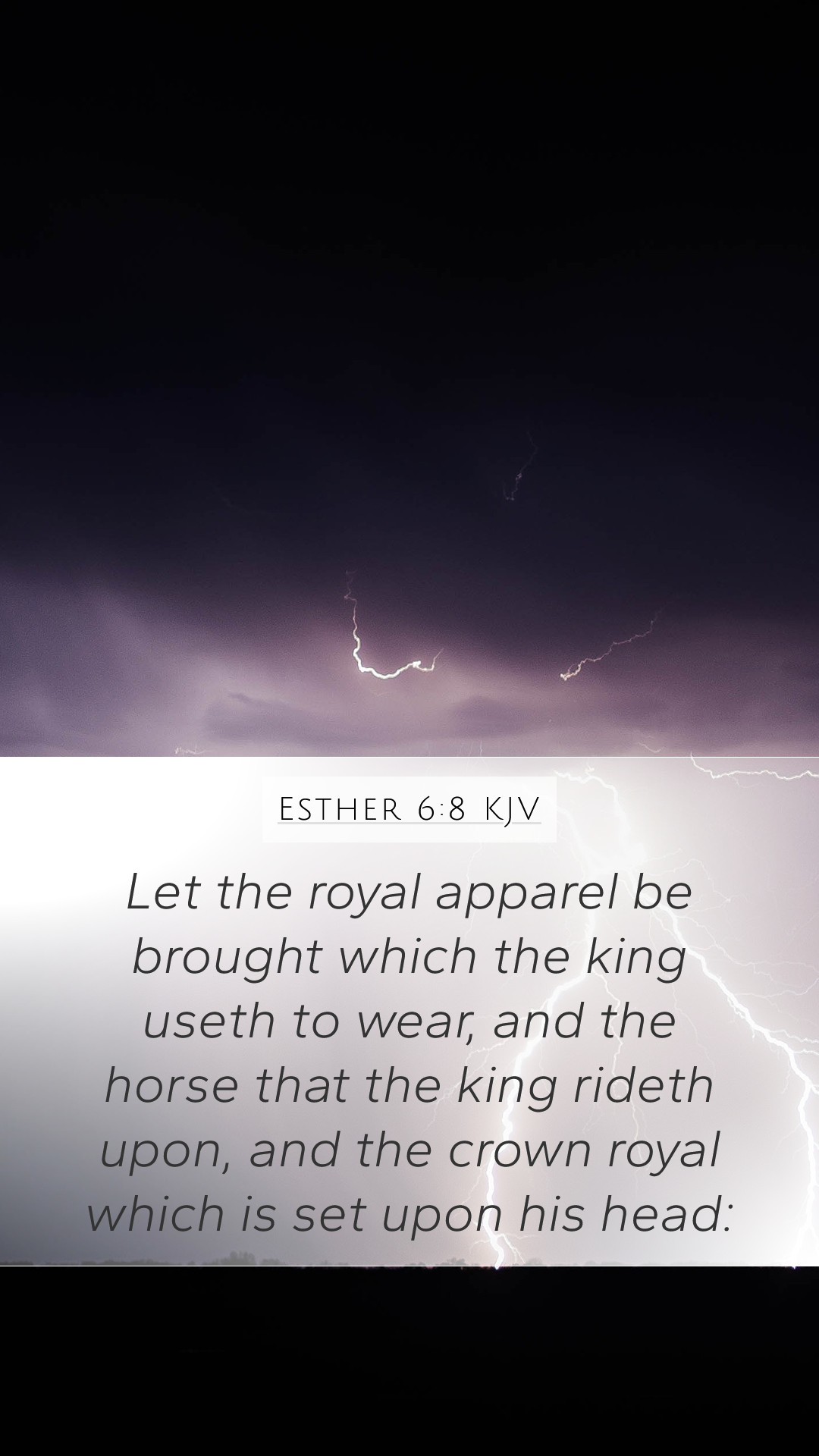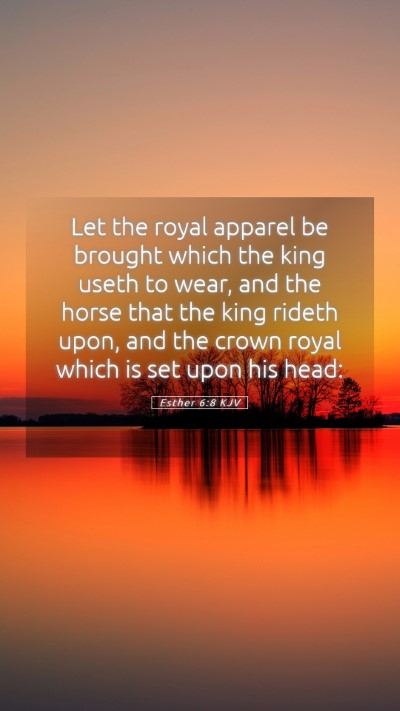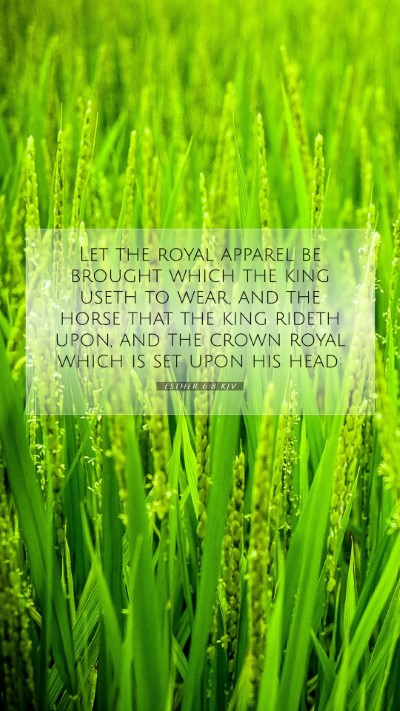Old Testament
Genesis Exodus Leviticus Numbers Deuteronomy Joshua Judges Ruth 1 Samuel 2 Samuel 1 Kings 2 Kings 1 Chronicles 2 Chronicles Ezra Nehemiah Esther Job Psalms Proverbs Ecclesiastes Song of Solomon Isaiah Jeremiah Lamentations Ezekiel Daniel Hosea Joel Amos Obadiah Jonah Micah Nahum Habakkuk Zephaniah Haggai Zechariah MalachiEsther 6:8 Meaning
What is the meaning of Esther 6:8?
Let the royal apparel be brought which the king useth to wear, and the horse that the king rideth upon, and the crown royal which is set upon his head:
Esther 6:8 Bible Verse Meaning
Understanding Esther 6:8
Esther 6:8 states, "Let a royal robe be brought which the king has worn, and the horse that the king has ridden, and let the royal crown be set upon his head." This verse is a pivotal moment in the Book of Esther, reflecting themes of honor, justice, and divine intervention.
Context and Background
The context of Esther 6 occurs after Haman has plotted against the Jews, aiming to annihilate them. In a remarkable turn of events, King Ahasuerus (Xerxes) has sleepless night and requests the chronicles to be read to him, ultimately leading to his discovery of Mordecai's previous act of loyalty.
Key Insights from Public Domain Commentaries
Matthew Henry's Commentary
Henry emphasizes the providential ordering of events, highlighting that this request for the royal robe symbolizes the king's intention to honor Mordecai. Despite Haman's machinations, God’s hand intervenes to elevate Mordecai as a means of delivering His people.
Albert Barnes' Notes on the Bible
Barnes discusses the significance of royal garments and the horse as tokens of honor and power. He notes that Haman's involvement in executing this honor for Mordecai, the very man he sought to destroy, illustrates a dramatic reversal that is central to the narrative of the book.
Adam Clarke's Commentary
Clarke provides insight into the cultural significance of royal attire, explaining how to wear such garments represented a profound rise in status. He points out that this act is not just about celebrating Mordecai; it is also an indictment against Haman’s plans, showcasing God's ultimate control over human affairs.
Thematic Elements
- Divine Justice: The verse reflects God’s justice, turning the plot against Mordecai into his elevation.
- Royalty and Honors: The royal robe and horse symbolize the highest honors one could receive, emphasizing the importance of recognition in ancient royal courts.
- Human Agency: Haman’s unwilling role in honoring Mordecai illustrates the irony that evil plans can lead to unexpected outcomes, often contrary to the intent of the planner.
Application of Esther 6:8
For contemporary readers, this verse exemplifies how, despite seeming setbacks and injustices, one should remain faithful, as God ultimately works things together for good. It encourages believers to trust in God's timing and justice.
Bible Study Insights
This scripture serves well in Bible study groups and can evoke rich discussion on topics like divine providence, justice, and the nature of true honor. It can also assist those engaging in online Bible study and using Bible study tools as a touchstone for understanding how God can overturn situations for His glory.
Related Bible Verses
- Mordecai's loyalty: Esther 2:21-23
- God's providence: Proverbs 21:1
- Exaltation of the humble: James 4:10
Conclusion
Esther 6:8 is more than just a historical account; it is a profound reminder of God's sovereign power in human affairs, the importance of faithfulness, and the unexpected ways in which God executes justice. Understanding scripture like this is key for deeper Bible verse interpretations and for those seeking meaning within the rich narratives of the Bible.


